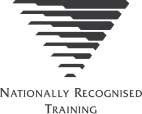Learning Mode
Online/Virtual/FacetoFace
Location
SA
Duration
18 Months
Study Load
Part-time/Full-time
Course Overview
This nationally recognised diploma, equips students with the knowledge and skills to support, empower, inspire, and advocate for individuals and communities to improve their wellbeing. Graduates gain specialist expertise to design, manage, and deliver community support programs addressing diverse and complex needs across areas such as family welfare, community health, employment services, and disability services. Students will develop the ability to assess the needs of individuals and groups, connect them with appropriate services, implement effective programs, advocate for client rights, and respond appropriately to crises, including family violence, mental health concerns, and child harm. The course also builds skills in case management, legal and ethical compliance, professional networking, and supervision of workers and volunteers, alongside fostering reflective practice and ensuring workplace safety. Upon completion, students are prepared for careers involving direct client work with individuals, families, children, and young people, supporting positive changes that enhance personal and social wellbeing.
Prerequisites
It is recommended that individuals seeking entry have sufficient relevant work experience to demonstrate a strong likelihood of success at this qualification level in a role that involves providing support, advocacy, case management, or client-focused services.It is recommended that individuals seeking entry have sufficient relevant work experience to demonstrate a strong likelihood of success at this qualification level in a role that involves providing support, advocacy, case management, or client-focused services.
Units of Competency
1 Trauma-informed Practice: Safety, Trustworthiness, Choice, Collaboration, and Empowerment
- CHCCCS004 Assess co-existing needs
- CHCCCS019 Recognise and respond to crisis situations
- CHCDFV001 Recognise and respond appropriately to domestic and family violence
- CHCMHS013 Implement trauma informed care
2 Attending to Difference
- CHCCCS007 Develop and implement service programs
- CHCDEV005 Analyse impacts of sociological factors on people in community work and services
- CHCDIV001 Work with diverse people
- CHCDIV002 Promote Aboriginal and/or Torres Strait Islander cultural safety
3 Trauma-informed Case Management
- CHCCSM009 Facilitate goal directed planning
- CHCCSM010 Implement case management practice
- CHCCSM012 Coordinate complex case requirements
- CHCCSM013 Facilitate and review case management
4 Centring Children and Young People in Case Management Work
- CHCCSM015 Undertake case management in a child protection framework
- CHCPRT025 Identify and report children and young people at risk
- CHCPRT026 Support the rights and safety of children and young people
- CHCPRT034 Work with children and young people with complex trauma and attachment issues and needs
5 The Personal and Professional in Case Management
- CHCLEG003 Manage legal and ethical compliance
- CHCMGT005 Facilitate workplace debriefing and support processes
- CHCPRP003 Reflect on and improve professional practice
HLTWHS003 Maintain work health and safety
Recognition of prior learning (RPL) credit may be granted for relevant prior study or experience. For more details on the RPL process, visit: RPL page
Fee
Full Fee: between $770 – $7000 Subsidies by the Australian and South Australian Government are available for eligible candidates.
For more information visit https://socialrelations.edu.au//fees-and-payment/
Qualification Information Brochure
Expressions of Interest
Are you interested in studying with us? Fill out the form below and we will get back to you with key dates and course information.

Nationally Recognised
Training (NRT)
Nationally recognised training (NRT) leads to vocational qualifications and credentials that are recognised across Australia.